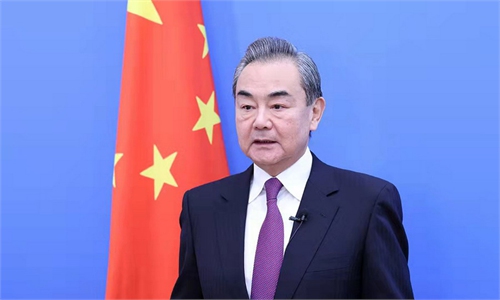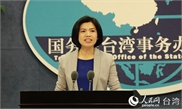
Illustration: Xia Qing/GT
It seems that the US and the island of Taiwan will continue with their political theater by engaging in empty economic talks, and it only exposes the shallow and fragile nature of their economic cooperation.
The US and the island of Taiwan on Tuesday held a second meeting of their economic dialogue which was launched last year, discussing such issues as supply chain resilience, science and technology, digital economy and 5G network, among others, according to the Japan Times. After the meeting, they reportedly agreed to promote supply chain security and cooperation on semiconductors to tackle global chip shortages.
This is not the first time that anti-China forces in the West tried to support Taiwan secessionist forces under the disguise of strengthening economic and trade exchanges. Judging from the results, the meeting failed to reference any specific projects or tangible progress on economic cooperation, which, given the current geopolitical landscape, make the dialogue look more like a political stunt.
In fact, the virtual meeting itself is of no significance, if the current cross-Straits situation is taken into account. Trying to save Taiwan's face may be the only aim.
The secessionist forces on the Taiwan island may believe the dialogue could eventually lead to a free trade agreement with the US, but there is no commitment from Washington to make this happen.
Some US politicians may try to use the Taiwan question to pressure the Chinese mainland, but all they dare to do is to play with words. The bottom line is now clear after US President Joe Biden clarified his position during a virtual summit meeting with Chinese leader that the US adheres to the One China policy.
Of course, it is undeniable that Taiwan's position in the global semiconductor supply chain does attract US attention as a severe chip crunch has disrupted global supplies for many months. Taiwan produces 65 percent of all chips and hosts the largest semiconductor manufacturer in the world, Taiwan Semiconductor Manufacturing Company (TSMC). But it may only make its semiconductor sector an attractive prize coveted by the US, which apparently has no intention or patience to conduct supply chain cooperation with the region on an equal footing.
Prior to the most recent two-way economic dialogue, the Biden administration forced major chipmakers in the world, including TSMC and Samsung, to voluntarily hand over inventory, order and sales data that are considered confidential and sensitive, citing the reason to help resolve the global chip shortage.
Moreover, TSMC has begun its construction of a chip factory in Arizona and plans to build as many as six factories in the American state over the next 10 to 15 years, Reuters reported. The development comes shortly after the US decided to tighten its grip on the global semiconductor supply.
What happened with Taiwan's semiconductor sector actually underlines the fragile nature of economic ties between the US and the island that fully manifests American coercion and domination. US attempts to intensify the division in the global semiconductor sector are counterproductive to the world's semiconductor industry, and are set to drive the supply line more vexed.



